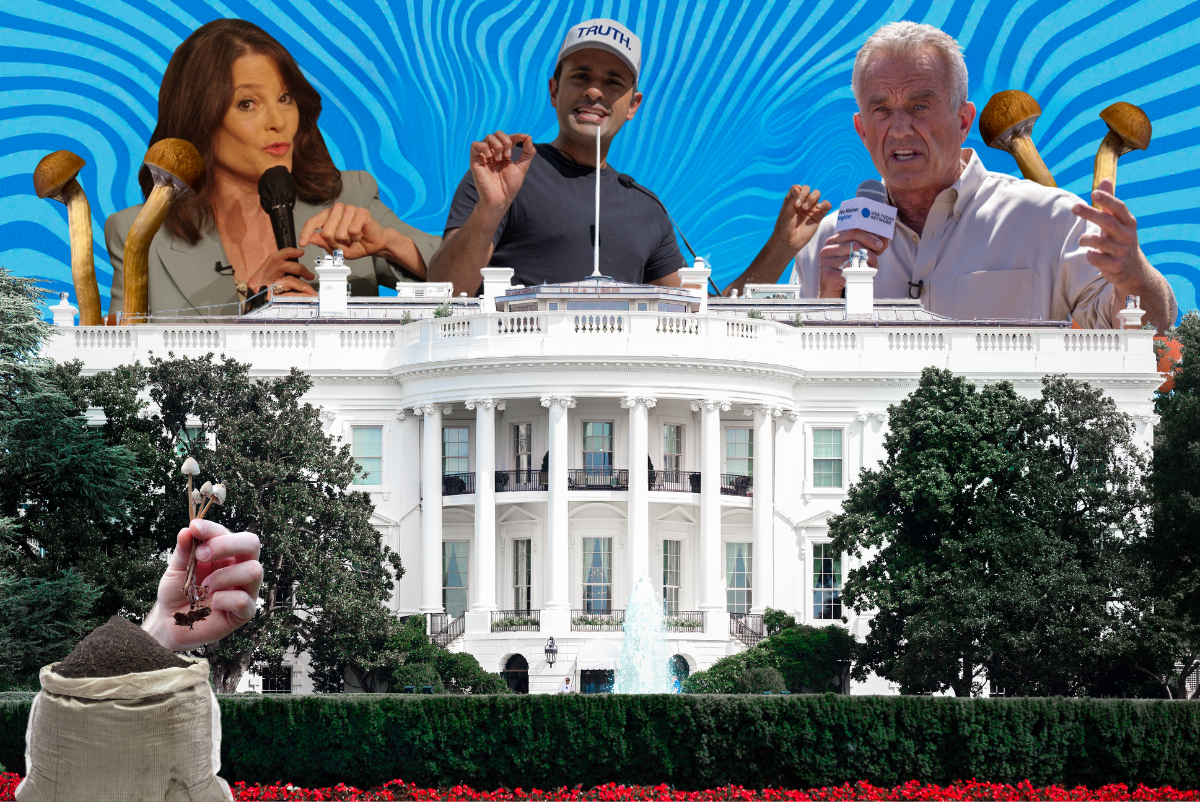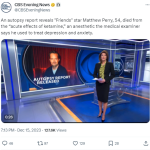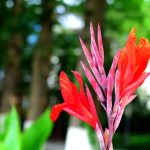
RESEARCH
A Single Dose of Psilocybin Leads to 50% Depression Remission in Cancer Patients, Study Finds
This week, researchers published a study in Cancer, a journal of the American Cancer Society, evaluating the safety, feasibility, and efficacy of psilocybin-assisted group therapy for the treatment of major depressive disorder (MDD) in patients diagnosed with cancer in a Phase 2 open-label clinical trial.
The researchers recruited 30 MDD patients with curable and non-curable cancer and administered a single 25 mg dose of psilocybin, with 3–4 patients receiving their dose simultaneously.
The data demonstrated that the treatment was generally safe and none of the participants experienced psilocybin-related serious adverse events. There were some mild “adverse events” related to the medicine, such as nausea and headache. However, these secondary effects were aligned with the scientists’ expectations and previous studies.
The most pertinent study outcome was related to psilocybin’s efficacy. The study results demonstrated that psilocybin-assisted group therapy can be an effective treatment for cancer patients struggling with MDD. The researchers found that psilocybin, accompanied by psychological support in a group setting, reduced patients’ Montgomery–Åsberg Depression Rating Scale (MADRS) score by an average of 19.1 points after two months post-treatment. Furthermore, 80% of the study participants had a sustained response and 50% showed remission starting at week 1.
The study’s positive outcome is also in line with Cybin’s Phase 2 clinical trial results evaluating synthetic psilocybin’s efficacy in treating MDD. Six weeks after administering two 12 mg doses of the psilocybin with psychotherapy, 79% of patients were in remission, demonstrating that consecutive administration sessions in a short period of time drastically improve results.
Read more here.
POLICY
Cross-Party 2024 Presidential Candidates Advocate a Psychedelics Reform
The 2024 U.S. presidential race is showing an odd alignment among democrat, republican, and independent candidates regarding the use of psychedelics. Marianna Williamson, who is running for the Democratic nomination against incumbent President Joe Biden, is advocating for a drug policy platform that would legalize “less harmful drugs” including cannabis and psilocybin while pledging to provide free access to psychedelic-assisted psychotherapy for the treatment of drug addiction. Meanwhile, Republican candidate Vivek Ramaswamy has expressed his interest in decriminalizing psychedelics like ayahuasca and ketamine to address suicide rates amongst military veterans suffering from PTSD. Independent candidate Robert F. Kennedy Jr. also showed support for a psychedelics reform, detailing how his son’s ayahuasca experience helped him process his mother’s passing.
This bipartisan push to explore psychedelics as therapeutic agents showcases a shift in perspectives towards plant medicines as tools for mental health and demonstrates how psychedelics’ potential efficacy in treating debilitating mental health diseases challenges previous prohibitionist stances.
Read more here.
Provincetown Votes to End Arrests for Natural Psychedelics
Provincetown, a small coastal resort town in the state of Massachusetts, has voted to make psilocybin mushrooms and other psychedelic plants the lowest priority for law enforcement in the community by order of the select board. More specifically, “investigation and arrest of adults for planting, cultivating” and sharing psychedelic plants and fungi will not be permitted. The measure also calls for town employees to treat the possession of all controlled substances as a public health issue rather than a criminal issue.
“This vote signals Board support of Provincetown to not only stand strong as a community known for its arts, inclusion and celebration but now also as a destination for healing, which could be a boon to our off-season economy.“ says Steven Azar, resident and small business owner in Provincetown. “Decriminalization of plant medicine will result in more public education on the safe use of plant medicine and its therapeutic benefits…,” said Patricia van Dijkhuizen, a resident of Provincetown, certified psychedelic practitioner, and LCSW.
Read more here.
CULTURE
The Manure Conundrum: State Officials Debate Mushroom Farming Practices
Manure is one of the traditional substrates for cultivating psilocybin mushrooms. However, it seems like the Natural Medicine Division in Colorado wants to favor other cultivation methods, such as grains, minerals and pulverized coconut shells. One of the main concerns from public health officials is manure’s potential for contamination.
However, some licensed professionals argue that psilocybin-infused edibles often have more contaminants than raw mushrooms grown from manure substrates. They suggest that contamination may actually occur from pathogens like E. coli or salmonella that are eventually introduced somewhere in the production process and ultimately end up in the final [infused] product.
Amateur mushroom grower Harold Evans also notes that a variety of vegetables that the public consumes are grown in manure. He emphasizes, “A lot of the vegetables that people eat is grown on manure, so I’m not sure how this would be any different.” Another proponent of the traditional substrate also highlights that manure alternatives like coco noir are “often mined in environmentally irresponsible ways,” thereby highlighting some environmental concerns.
As Colorado prepares to open medical psilocybin centers and cultivations in 2025, the state has the task to formulate regulations under the new psychedelics law, which mandates that any future rules must honor Indigenous practices. This means that switching to non-manure options may complicate the regulatory landscape as Indigenous groups traditionally cultivate psilocybin mushrooms in manure.
These discussions are ongoing, with the NMD holding public hearings into early 2024 to develop comprehensive regulations.
Read full story here.
Cause of Matthew Perry’s Tragic Passing Brings to Light the Stigma Still Tied to Ketamine and Other Psychedelics Being Used to Save Lives
Last Friday, the Los Angeles Medical Examiner’s Office released the autopsy report associated with Matthew Perry, star of the 90’s sitcom, “Friends,” who was tragically found dead in his Pacific Palisades pool on October 28.
The report determined that Perry’s cause of death was a result of “acute effects of ketamine” and subsequent drowning with levels of 3271-3540 ng/ml of ketamine present in his system at or around the time of death.
The Hollywood celebrity’s long-standing battle with substance abuse and depression were subject to discussion for years. Consequently, when recent reports indicated that Perry was undergoing ketamine therapy through infusions with his last session reportedly happening a week before his death, several professionals and physicians offering KAT voiced concerns. Understandably, they were troubled by the waves of misinformed speculative-driven comments about ketamine which underscored the stigma that is still very much associated with ketamine and psychedelic-assisted therapy.
Dr. Steven L. Mandel, President and Founder of Ketamine Clinics Los Angeles, a leading ketamine infusion therapy clinic in Southern California, explained that, “[Perry’s autopsy report] alarms a lot of people seeking treatment with this amazingly effective, safe, fast drug.”
He continues with “What happened to Mr. Perry has nothing whatsoever to do with the treatment of mood disorders with ketamine, more than an unfortunate person who downs a fifth of vodka and suffers alcohol poisoning has anything to do with someone having a cocktail.”
Sam Mandel also told Psychedelic Spotlight that “In addition to the quantity of the ketamine that was involved in this case, it was also in combination with an opioid and benzodiazepine, both powerful sedatives that are dangerous, when combined just the two of them without ketamine, let alone with the addition of ketamine and alone in a hot tub. It’s quite clear that he [Perry] died by drowning, and there were all of these various factors that were contributing factors. But it wasn’t necessarily any one of them that was the real cause of death, including the ketamine, despite the fact that it was an extraordinary amount for someone to be taking by themselves in an unsupervised manner.”
Read more here.


No comment yet, add your voice below!